VW Arteon R Shooting Brake first drive: a sportier estate
VW’s top-of-the-range car comes in a Shooting Brake form to provide a more spacious solution while still delivering all the thrills of an R model

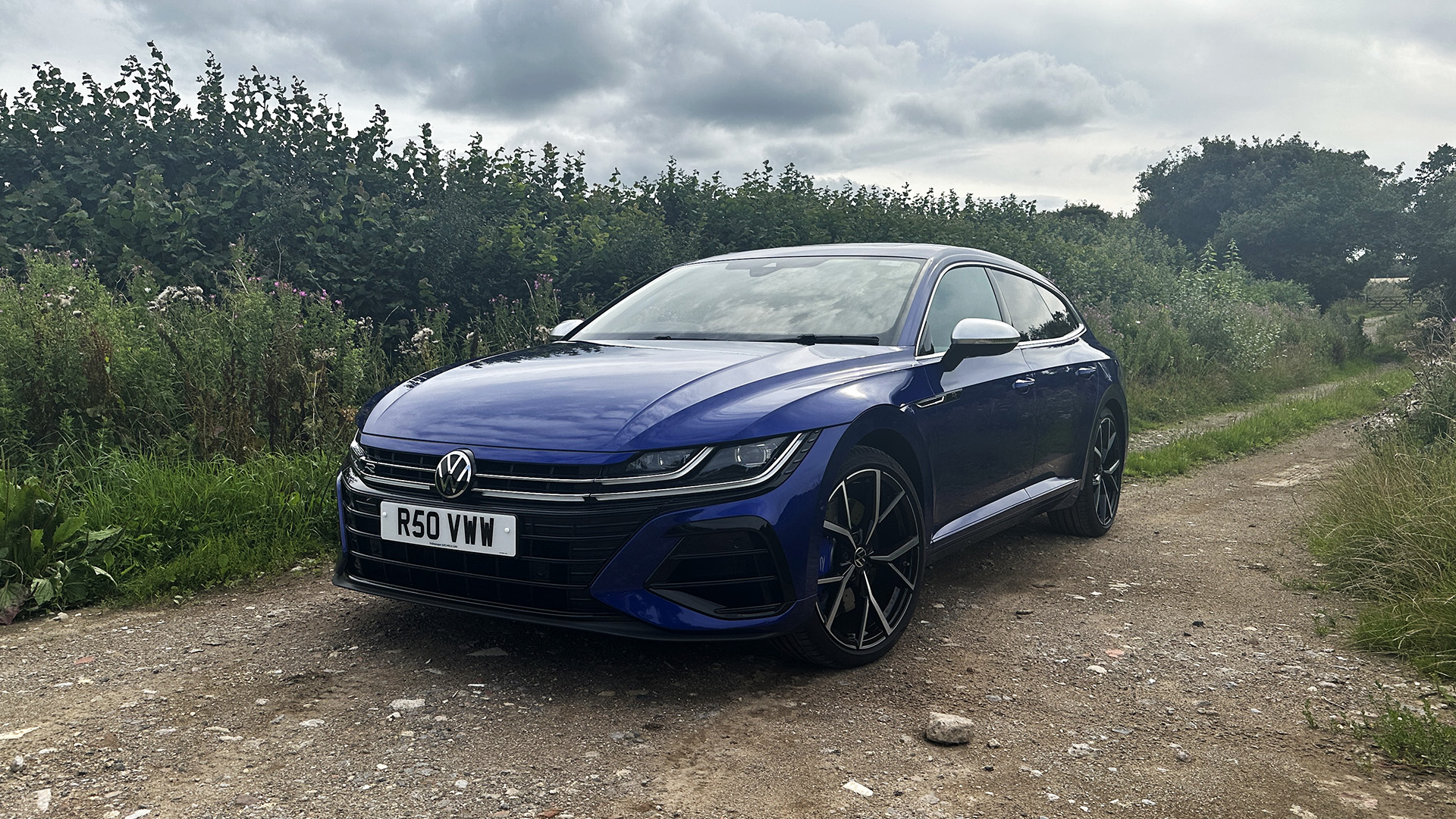
Get all the latest news, reviews, deals and buying guides on gorgeous tech, home and active products from the T3 experts
You are now subscribed
Your newsletter sign-up was successful
In a world dominated by SUVs, the luxury saloon is often forgotten. Even the estate, once the lifeblood of families and travelling salesman, are now being superseded by SUV or crossover models.
The Volkswagen Arteon R Shooting Brake isn’t officially an estate model (though it is listed in that category on VW’s website). The term shooting brake is traditionally given to two-seater estate cars, or estate versions of coupes rather than saloons or sedans. The Arteon Shooting Brake is a four-door car but it’s certainly sportier looking than a standard estate shape. The roof slopes down more but still has estate-like properties, leaving you with lots more luggage room.
The model I tested wasn’t just your average Arteon Shooting Brake though, this was the R edition, the most powerful model in the range. So how does this wagon perform on the road? I spend a weekend giving it some long drives to find out.
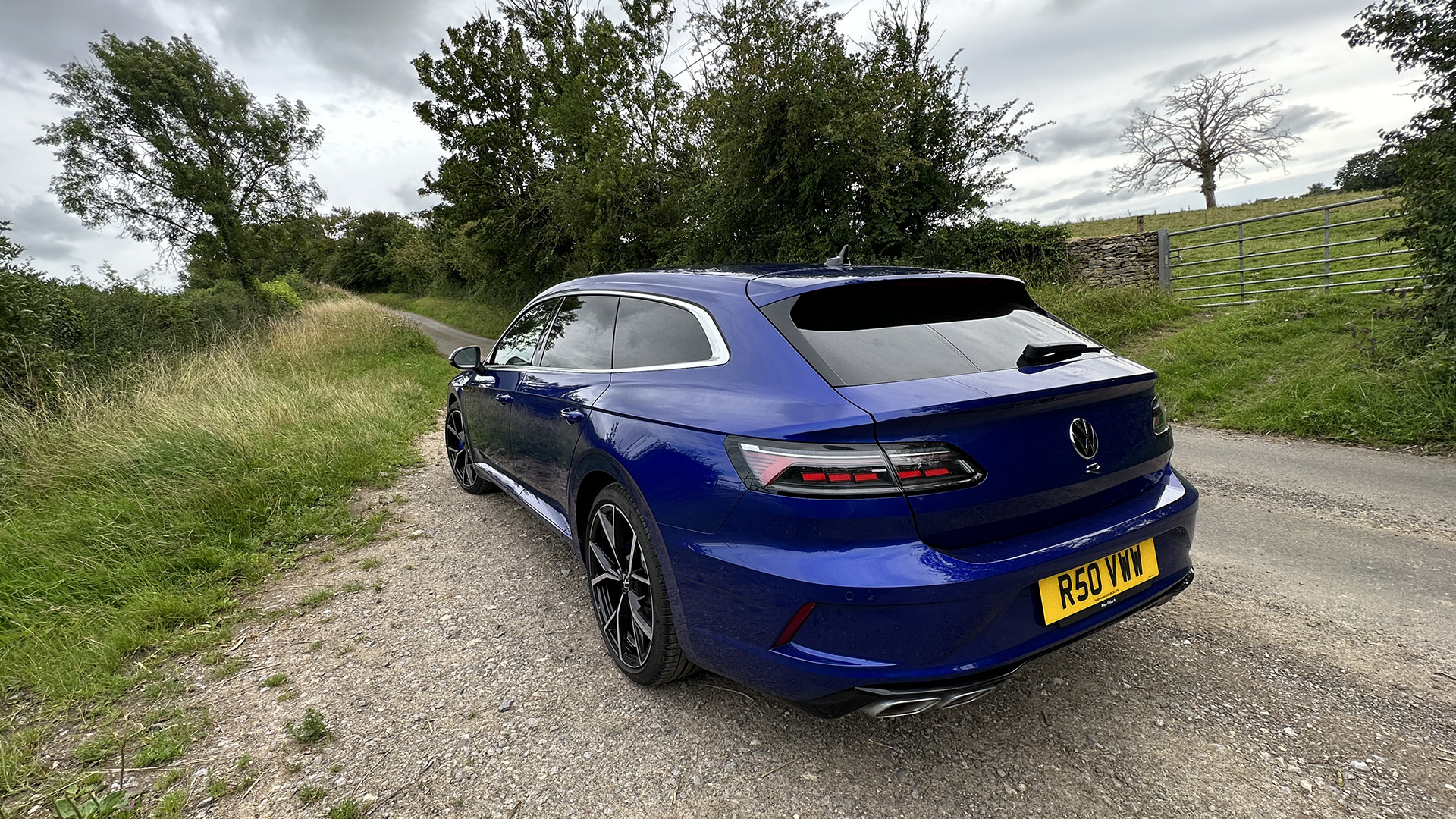
Price and availability
The Arteon Shooting Brake starts from £41,385 (less than a top-spec VW ID. 3) and is available in three main versions: the Elegance, R-Line and the top-of-the-range R. Both the Elegance and the R-Line are available in Plug-in hybrid forms, with a 1.4 TSI eHybrid engine starting from £45,940. The model I tested was the Arteon Shooting Brake R 2.0 TSI with extras including the assistance pack plus, discover pro navigation, IQ. Light LED matrix headlights and head-up display, priced £64,225 on the road.
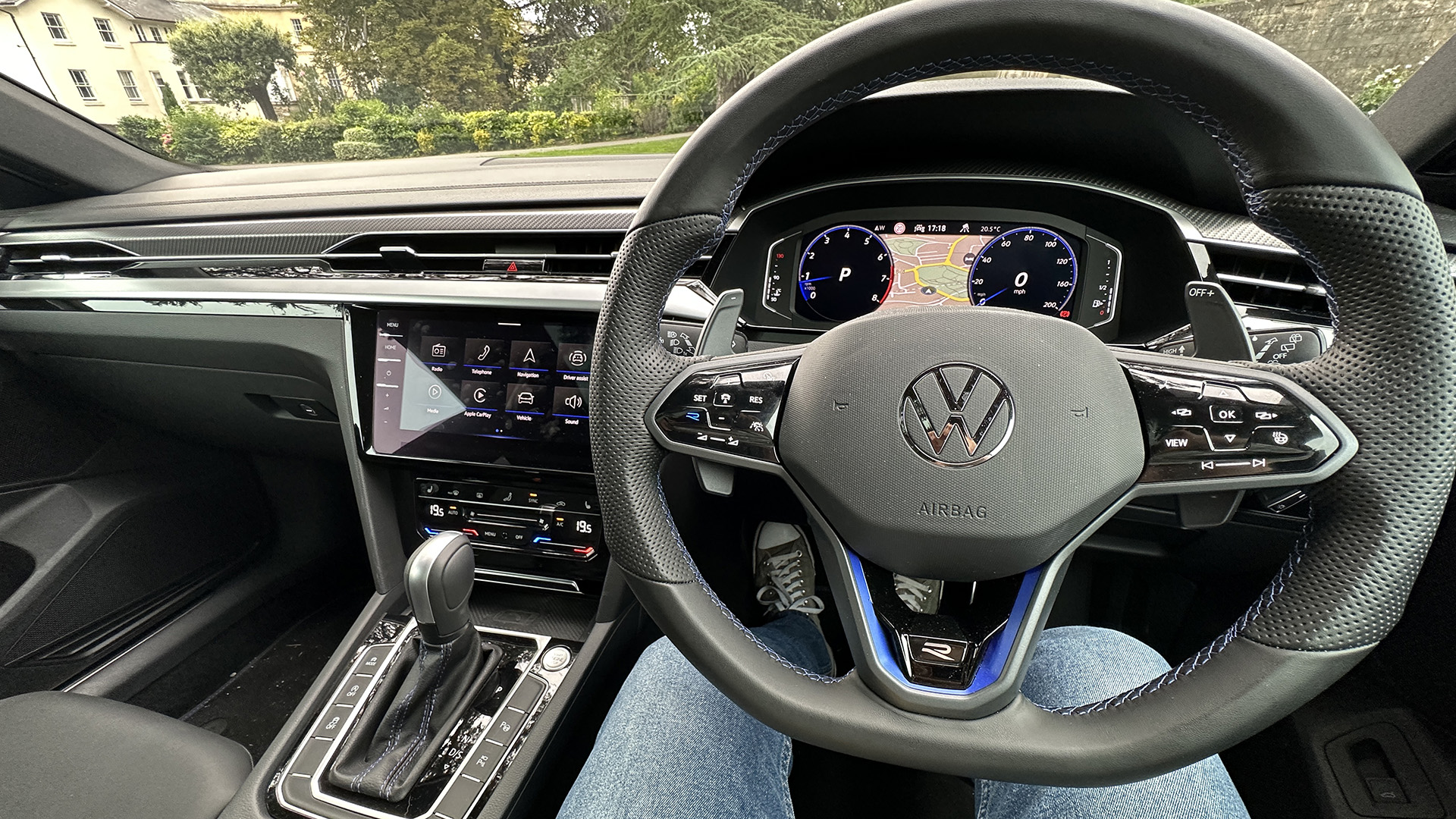
Design and features
There’s often a stigma that comes with estate cars that they are more functional than stylish but the Arteon Shooting Brake is a great looking car. The long, low form feels stealthier than an SUV and the shape of the back end here is much sportier than a regular estate.
The LED headlights blend nicely into the grill giving the car an intense stare. Meanwhile, the side profile sees the lines following down the long length of the body and the rear windows extend into that boot space, all adding to the swoop of the rear.
That boot is actually 590 litres in capacity and over two metres in length with the rear seats folded down (117.9cm without). That’s a lot of space, despite not having quite the height of your average estate car.
Get all the latest news, reviews, deals and buying guides on gorgeous tech, home and active products from the T3 experts
There’s plenty of space in the back seats for two or three passengers, with a central armrest that pulls down when needed. In the front, the cabin looks pretty slick, with a very monotone look that envelops you as you sit low in the seat, in a way that SUVs don’t. Behind the wheel is a 10.25-inch high res display for the vehicle information, with a choice of views including navigation and media displays.
In the centre is an 8-inch touch-screen display, which offers VW’s OS, including navigation and DAB radio. The wireless App-Connect also allows you to use Apple CarPlay or Android Auto on screen. It’s not the largest screen, but combined with the driver display and the head-up display, it’s more than adequate.
One nice thing in this setup is that the Arteon still features a proper gear stick for the automatic gearbox, complete with manual gear changing in Sports mode. It also has paddles on the steering wheel that, when pressed, put it into manual mode.
The controls on the steering wheel provide access to the adaptive cruise control and audio volume on the left, and the driver and head-up display controls on the right. The Harmon Kardon sound system option adds a 16-channel digital amplifier with 10 speakers plus a subwoofer and 700W output. It’s not as crisp as some top-end systems but it does sound pretty good.
For a top-spec model, there’s still a fair amount of plastic on show in the Arteon, but considering the total price of the car, it’s nicely done. More business class than first class to give a plane comparison.
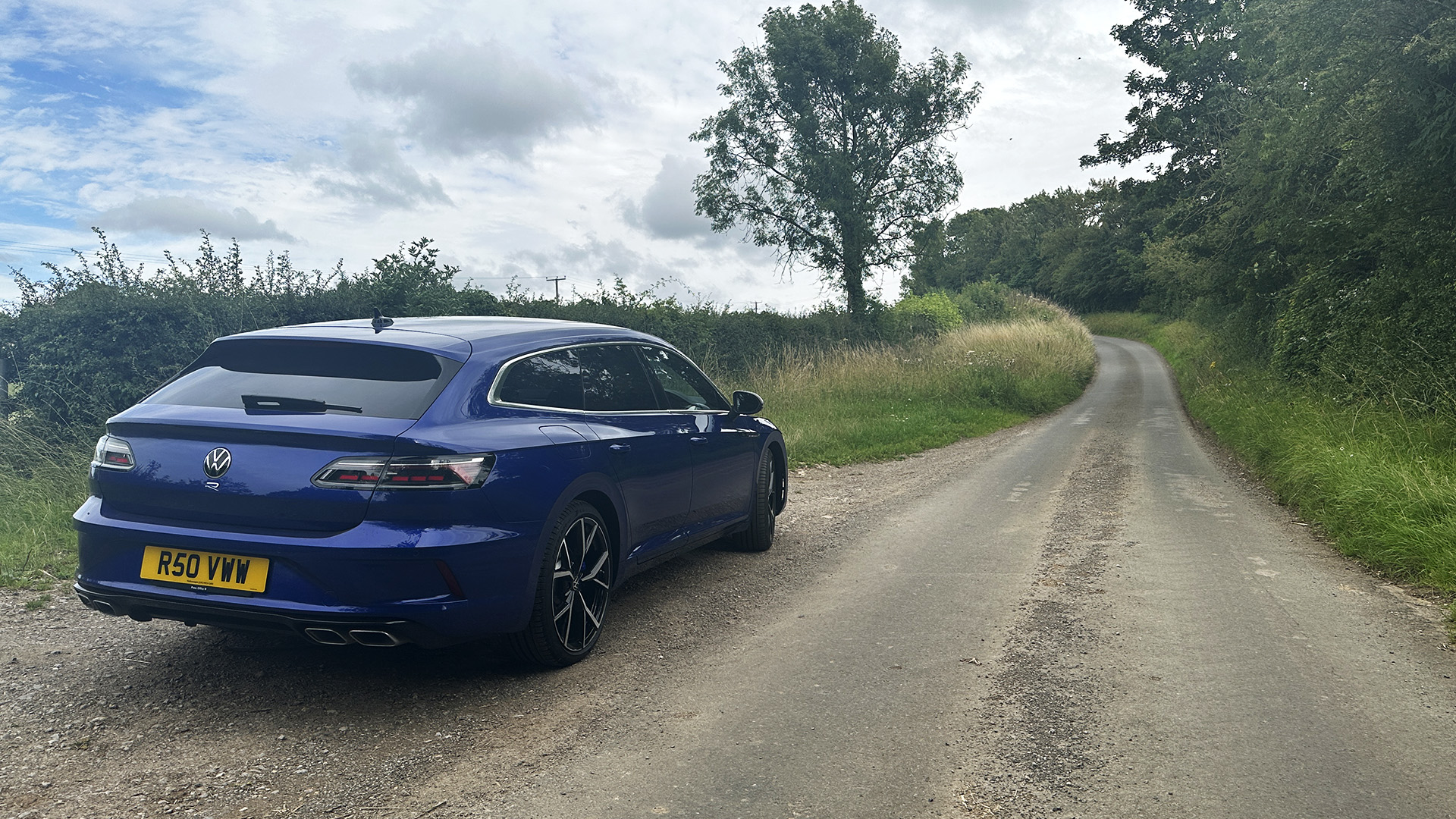
Performance and drive
That 2.0-litre turbocharged engine in the Arteon R Shooting Brake is delivering 320PS (mechanical horsepower) and 420Nm of torque. That gives you a 0-62mph of 4.9 seconds and an electronically limited top speed of 155 mph. That’s a little slower than a lot of the premium electric models, but for a petrol car of this size, it’s pretty nifty.
The first thing I noticed is that despite the size of this car, the steering feels pretty light, which might be down to a lot of the 1,783kg weight being further back. The 4Motion system provides four-wheel drive, with electronic differential locks. The driving profile modes give you a choice of Eco, Normal, Sport and Race, plus an individual (custom) mode.
For standard motorway driving you can certainly benefit the fuel economy of the car by sticking it into Eco – giving you an MPG in the upper 30s. However, the Arteon only starts to feel spritely in the Sport and Race modes. All that weight seems to disappear completely when you press the dedicated R button on the steering wheel that places the car straight into Race model. This not only changes the gear ratios to rev higher, but it really lets you hear the growl of that engine.
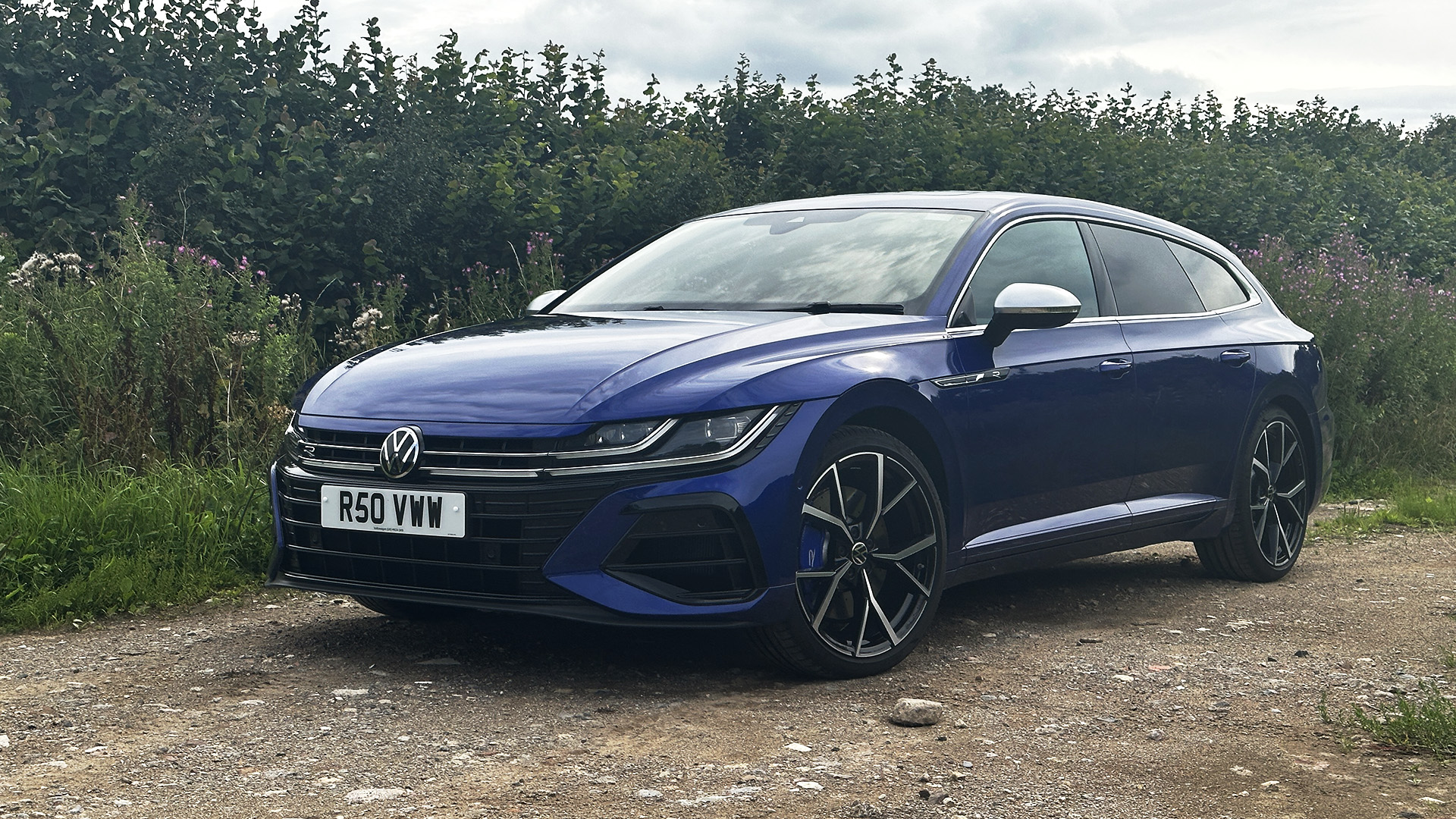
Verdict
It’s no secret that VW is planning to streamline its range in the coming years and with the VW ID. 7 expected to arrive early next year, I fear the Arteon’s days might be numbered. That’s a real shame as this is an excellent car. However, an electric version of the Arteon makes sense and if the ID. 7 can deliver that, then it’s good news.
There is expected to be an estate or Shooting Brake version of the ID. 7 on the way too, so the spirit is bound to live on. In the meantime though, if you are looking for a well-priced premium estate model with plenty of power, the Arteon R Shooting Brake is well worth a look.

As T3's Editor-in-Chief, Mat Gallagher has his finger on the pulse for the latest advances in technology. He has written about technology since 2003 and after stints in Beijing, Hong Kong and Chicago is now based in the UK. He’s a true lover of gadgets, but especially anything that involves cameras, Apple, electric cars, musical instruments or travel.